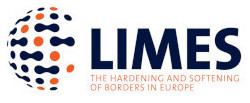Soft EU Borders in Africa. How Migration Campaigns and Social Media affect Young Senegalese Men’s Migration Aspirations and Sense of Social Justice
Research Focus and Methodology
In her research, Cecilia investigates the production, implementation, and reception of migration information campaigns that European states fund in Senegal to discourage African youth from migrating irregularly to Europe. The first article of her thesis examines why and how Senegalese citizens help to implement campaigns in Senegal when such campaigns try to curb the very mobility they aspire to themselves. The second article looks at how European policy makers justify the need for migration campaigns allowing to better understand the imaginaries of people who develop migration governance measures. The third article analyses the perceptions of Senegalese youth who are the audience of deterring messages circulated through the campaigns. Cecilia conducted ethnographic fieldwork in Senegal for 15 months during which she followed the making, the performing and the reception of migration information campaigns, by participating in campaign activities that took place across the country. She also conducted online semi-structured interviews with European policy makers based in the Netherlands and in Senegal who contributed to initiate and design campaign interventions.
Relation to Borders
The proliferation and changing nature of borders is a characteristic of current border regimes and migration management. Borders expand beyond national territorial borders and emerge within territories in various forms. In Cecilia’s thesis, migration campaigns are conceptualized as ‘soft borders’ that Europe implements in countries of origin as a new form of delocalized migration control, free from coercion, to immobilize so-called ‘potential migrants’.
Findings and Takeaways
In her research, Cecilia finds that EU-funded migration campaigns are ambiguous measures of migration governance whose implementation concurrently legitimizes restrictive migration policy and responds to the humanitarian objective to save lives. Different actors involved in the production and implementation of the campaigns find themselves navigating contradictory objectives of care and security. Local campaign staff are brokers who implement migration control in their work of translating policy into practice. Simultaneously, in performing their tasks of implementers, they find fissures to subtly contest a campaign’s dominant message, allowing for other discourses to emerge. In funding migration campaigns, European states act as ‘humanitarian government’ driven by moral sentiments that legitimize its practice of border control. While showing compassion for distant subjects, the humanitarian government normalizes migration regimes reinforcing power imbalances. Senegalese youth to whom campaigns are addressed, apparently sustain the campaign goal to fight irregular migration. Yet, they do so by advocating for mobility justice and the right to move safely. In this way they re-appropriate voice and space and resist the paternalistic character of campaign intervention.
Researcher: Cecilia Schenetti (see profile)
Supervisors: Valentina Mazzucato, Sally Wyatt, Djamila Schans (see profiles)
